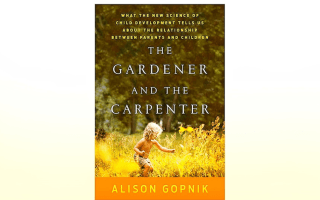Have you ever let your child win just to avoid a meltdown? It’s awful watching them suffer. And, it can really disrupt your time together. So much so that, sometimes, we’re tempted to let them win Candy Land because what harm can it do? Well, it turns out we might be taking away valuable lessons about losing, sportsmanship and resilience. Here’s what we learned about how to help your child lose gracefully.
Help your child practice losing at home
Playing games like Candy Land and Chutes and Ladders helps kids learn their colors and counting, but it also teaches them about taking turns and losing. It’s helpful to first go through these big emotions at home with those closest to them. After playing any game, you can discuss how it feels to win or lose and perhaps, what it’s like for the other player. Discussing their feelings will teach them about empathy when they do win.
Model good sportsmanship
If you do end up letting them win, you can model being a good sport and congratulate them. Kids learn best by watching. What we do matters more than anything we say. So, if you’re playing games together, model losing gracefully. Some suggest we keep our cool when watching sports and curbing trash-talking or booing.
Also, it’s beneficial to model losing with grace and openly express your disappointment. Show them it’s okay to be disappointed. What we want to teach them is that it’s not okay to react unkindly by saying mean things to their opponent or throwing things after losing.
On her podcast, acclaimed clinical psychologist Dr. Becky Kennedy recently discussed modeling our child’s struggle around them so they can learn from observation. In this manner, we can model a coping mechanism for disappointment instead of lecturing them about it. She recommends the strategy of modeling getting upset and then demonstrating pulling ourselves together. While we gather our wits, she recommends having our children hear us say to ourselves, “I’m disappointed. It doesn’t have to be anyone’s fault. No one has to be bad or wrong—not anyone else, not me. I’m disappointed. I’m allowed to be disappointed.” Kennedy then suggests we say something like this to our kids, “Whoa, sorry. I just started yelling at you. That wasn’t about you. Ugh, that disappointment came over me.”
Dr. Kennedy explains that we remove any shame by working “through it in an imperfect way.” We show them how to cope with disappointment realistically. Had we feigned being okay with losing after a few deep breaths, children may view their inability to cope as shameful or dealing with disappointment as unattainable. This realistic demonstration shows them that we, as adults, also struggle with these challenges and disappointment. And by drawing these parallels, we build their emotional intelligence and equip them to deal with disappointment.
Talk about it before they go out there
Before heading to a game or competition, discuss what could happen. Talk to your kids about what both winning might feel like and how losing might make them feel. Like most areas, kids process things better when you arm them with information on what to expect.
Help your child lose out there
When they inevitably experience losing outside of the home, you can be a shoulder to cry on and their sounding board. Show them the empathy you would, say, your spouse when they didn’t get a job. Just because the stakes seem low doesn’t mean they were low for them. But, also point out what they did well, like following the rules and working their hardest. Sometimes, we all want to be heard and not feel alone in our disappointment.
It’s how you play the game
It’s important to talk about the process and not just the result. How you play the game, have fun, and spend time together with friends is just as important, if not more. Derek McCormack, Director of the Raising Children Network, explains, “Having conversations that help them understand that [enjoying the activity is the aim] is really important because it helps them understand how to be a good sport.”
Even if you disagree that having fun is the goal of playing games or sports, every loss is also practice towards possibly winning the next game. If your child loses a competition, you can talk to them about what you learned from this particular event. These discussions help build the idea that effort and practice accumulate, leading to improvement and growth, which teaches perseverance. Take this time to discuss what went well and what didn’t go so well so you can brainstorm areas of improvement.
Assistant professor Dr. Shauna Tominey at Oregon State University’s College of Public Health and Human Sciences writes, “Focusing on winning as the most important outcome (e.g., “being a winner” or “not being a loser”) can negatively impact a child’s self-esteem. Rather than believing they have the potential to grow, children may turn hurt feelings inward, believing they are a failure or not good enough. These types of feelings can make being a good sport especially hard.”
Help them have a plan for calming down
They may need help processing their loss. Help your kids build a plan to help them calm down when they need to through deep breathing or counting backward from ten. It won’t work right away, but you have to build in the practice with them, so they have the tools when it counts.
Praise them when they do show good sportsmanship
If they take their loss in stride or congratulate the other player, be sure to acknowledge that. It’s not easy to do-even for adults. Positive reinforcement goes a long way when it comes to encouraging good behavior.
Don’t leave it to chance
Sometimes, games are based on skill, but often they’re just based on luck, like Candy Land and Chutes and Ladders. It’s beneficial to explain these things to kids so losses don’t feel personal. Let them know, so they realize that sometimes, it certainly is that the other child is a better player or more athletic. However, sometimes, it’s the “luck of the draw” or a roll of dice.
Teaching them to be a gracious winner is just as important
When they win, it’s essential to teach them to acknowledge their opponent’s hard work and effort. It’s great to model shaking hands with all the players and commenting on something they did well. Through these interactions, they will form stronger bonds with their friends. McCormack explains, “One of the things that can build resilience without having a tough time is having good relationships with those around you.”
Winning and losing is a part of life. Helping your child lose and maneuver through these highs and lows builds resilience and teaches other invaluable lessons that will carry them through life. And with some guidance and lots of practice, they can also learn to win and lose with grace and empathy and hopefully get the returns of strong interpersonal relationships and gained perseverance.
Read more posts about Child Development where we share the latest research to help you meet your child at each age and stage.]
This article is for informational purposes only, even if it features the advice of physicians and medical practitioners. It is not intended to be a substitute for professional medical advice, diagnosis, or treatment and should never be relied upon for specific or personal medical conditions. Your use of the site indicates your agreement to be bound by our Terms of Use and Privacy Policy.







